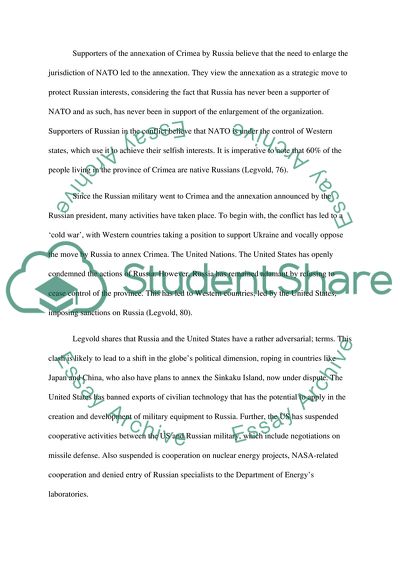Cite this document
(“Policy Paper on the Conflict between Russia and Ukraine Book Report/Review”, n.d.)
Retrieved from https://studentshare.org/social-science/1657309-policy-paper-on-the-conflict-between-russia-and-ukraine
Retrieved from https://studentshare.org/social-science/1657309-policy-paper-on-the-conflict-between-russia-and-ukraine
(Policy Paper on the Conflict Between Russia and Ukraine Book Report/Review)
https://studentshare.org/social-science/1657309-policy-paper-on-the-conflict-between-russia-and-ukraine.
https://studentshare.org/social-science/1657309-policy-paper-on-the-conflict-between-russia-and-ukraine.
“Policy Paper on the Conflict Between Russia and Ukraine Book Report/Review”, n.d. https://studentshare.org/social-science/1657309-policy-paper-on-the-conflict-between-russia-and-ukraine.


